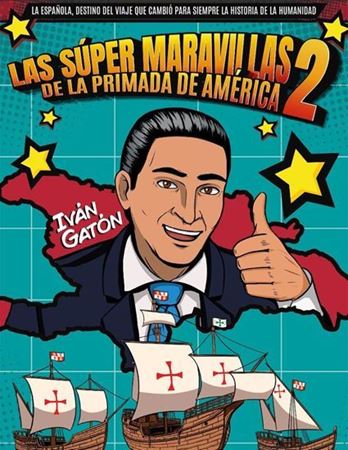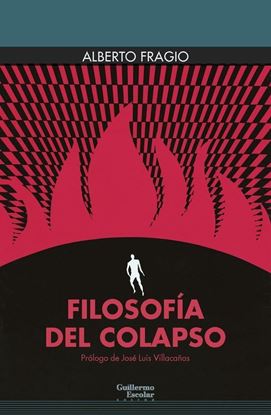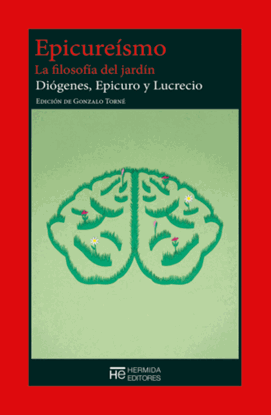

NOVEDADES
UN MUY BREVE VIAJE A TRAVES DEL CUERPO
Alguna vez te has preguntado...
¿Por qué soñamos?
¿Para qué sirven las huellas dactilares?
¿Cómo llega un bocadillo de queso de un extremo al otro del cuerpo?
Pasamos toda nuestra vida en un cuerpo y, sin embargo, la mayoría de nosotros no tiene ni idea de cómo funciona ni de lo que ocurre en su interior.
Repleta de datos alucinantes sobre su funcionamiento, esta extraordinaria guía ilustrada del cuerpo es una adaptación del best seller mundial EL CUERPO HUMANO de Bill Bryson.
1,850
1,480
MITOLOGIA
Un volumen que atesora leyendas épicas, extraordinarias y sobrenaturales de la era clásica, la mitología europea, la egipcia y la africana, la de Oriente próximo y la de Asia, la de Oceanía y la de las Américas. Historias que hablan de lo humano y lo divino, de los dioses y los héroes que han contribuido a enriquecer las tradiciones de las diferentes culturas.
3,650
2,920
POR QUE ALGUNOS HOMBRES ODIAN A LAS M.
Antes de convertirse en una de las grandes cronistas de lo íntimo, Vivian Gornick escribía con la claridad furiosa de quien ha elegido vivir al servicio de una causa. Los textos reunidos en Por qué algunos hombres odian a las mujeres revelan a una pensadora radical, lúcida y vibrante, en plena efervescencia del feminismo de los años setenta. Desde las disputas ideológicas dentro del movimiento hasta las conversaciones aparentemente triviales en una peluquería del Upper West Side neoyorquino, sirven a Gornick para capturar el pulso de una transformación histórica. Y le sirven además para reflexionar sobre las diferencias entre las olas feministas, denunciar la misoginia soterrada –y no tanto– en autores consagrados como Norman Mailer, Saul Bellow o Philip Roth, y defender el poder político del testimonio personal en los grupos de autoconciencia, donde lo privado se vuelve revolución. Este libro no es solo la crónica de una época: es una cartografía de la resistencia, una llamada a no bajar la guardia, una guía de combate. En tiempos en los que el feminismo vuelve a ser desafiado por viejos y nuevos reaccionarismos, estas páginas nos recuerdan que ninguna conquista es irreversible y que la autonomía de las mujeres sigue siendo, para muchos, una amenaza intolerable. Con prosa incisiva, Gornick analiza cómo se construye el poder masculino, cómo se transmite la sumisión femenina, y qué ocurre cuando una mujer empieza a ver su experiencia personal como parte de algo mayor.
1,650
1,320
FILOSOFIA DEL COLAPSO
Filosofía del colapso pretende dilucidar los presupuestos filosóficos, metafísicos y aun teológicos involucrados en las narraciones sobre el colapso. Estas narraciones han alcanzando tal rango teórico que puede hablarse, sin reparos, de una auténtica colapsología. Se trata de una síntesis de vastos dominios de conocimiento científico en torno a cuestiones de gran calado como el cambio climático, el pico del petróleo o la pérdida de la biodiversidad. Frente a la tesis del progreso infinito o de la abundancia ilimitada de recursos, los colapsólogos creen desvelar una tendencia de la civilización industrial hacia el desmoronamiento. En la medida en que la colapsología también plantea la pregunta por la existencia humana bajo la hipótesis del peor escenario posible, se trata de una recuperación contemporánea del existencialismo. A este respecto, la obra propone aplicar las categorías analíticas básicas del existencialismo a la colapsología, con el fin de elaborar una hermenéutica existencial del colapso.
1,150
920
EPICUREISMO
El epicureísmo quizás sea la empresa filosófica más decidida a liberarnos de las preocupaciones y el dolor y a procurarnos una vida serena dedica a los placeres que nos quedan al alcance de la mano. Epicuro desarrolló su filosofía en un jardín abierto a los amigos, discípulos, mujeres y esclavos. Hemos antepuesto a los textos de su propia mano la biografía que escribió Diógenes Laercio, fuente de todo lo que sabemos sobre el gran filósofo helenístico, y completado la edición con una selección de los mejores pasajes de romano Lucrecio quien por devoción a Epicuro se impuso la tarea de verter su filosofía en un imponente poema De la naturaleza.
Tristes y alegres, perturbados y serenos... quedan todos invitados a escuchar las lecciones de Epicuro en su jardín.
1,450
1,160
PEQUEÑA CRONICA. CUATRO RELATOS
El volumen Pequeña crónica. Cuatro relatos lo publicó en 1929 la prestigiosa editorial Insel de Leipzig. Era un pequeño tomo de poco más de cien páginas que aparecía cuando el nombre de Stefan Zweig era ya el más cotizado de entre los autores europeos de la época. Los cuatro relatos que contiene tratan de vidas de personas en apariencia insignificantes, pero colmadas por la pasión; en palabras de Zweig: «…tratan de destinos de gente sencilla, de esos destinos que carecen de relevancia pública pero que para los afectados son tremendamente trágicos». «La colección invisible» recrea la historia de un coleccionista de grabados antiguos de los grandes maestros de la pintura universal. En este relato Zweig reprodujo —llevándola al extremo— algo de su propia pasión por las colecciones de autógrafos de grandes literatos y músicos. Según él, «Todos los coleccionistas son hombres felices», y también lo es en apariencia el protagonista de esta historia, aunque ignore de qué profundo abismo proviene su ilusoria felicidad. «Episodio en el lago de Ginebra» relata la peripecia de un soldado ruso que por misteriosas circunstancias aparece como náufrago en las aguas del bello lago suizo: son tiempos de la Gran Guerra, y el pobre hombre se entera de repente que fronteras y leyes incomprensibles para él le impiden regresar a la patria. «Leporella» es la historia de una obtusa y tétrica sirvienta que por sumisión a su amo es capaz de cometer las acciones más reprobables. La historia parece inspirada en el mejor Poe o en el mejor Maupassant. «Mendel el librero» versa sobre un anticuario de libros omnisciente al que apodan «Libromendel», que lo sabe todo de los libros con los que comercia; desde el vienés café Gluck, donde se ubica el centro de su negocio, este viejo judío se relaciona con los bibliófilos más conocidos del mundo, hasta que la confrontación bélica entre las naciones de Europa trastocará su apacible existencia. Este nuevo volumen de relatos del gran Stefan Zweig prosigue con la iniciativa de Hermida Editores de publicar en castellano estas narraciones tal y como vieron la luz la primera vez que se publicaron en alemán: agrupadas en volúmenes autónomos tal y como lo concibió inicialmente su autor. Con este propósito han aparecido ya los títulos: Novela de ajedrez, Amok. Novelas de pasión, Primera experiencia. Cuatro historias del país de los niños, Confusión de sentimientos. Tres novelas y Miedo.
1,450
1,160

























